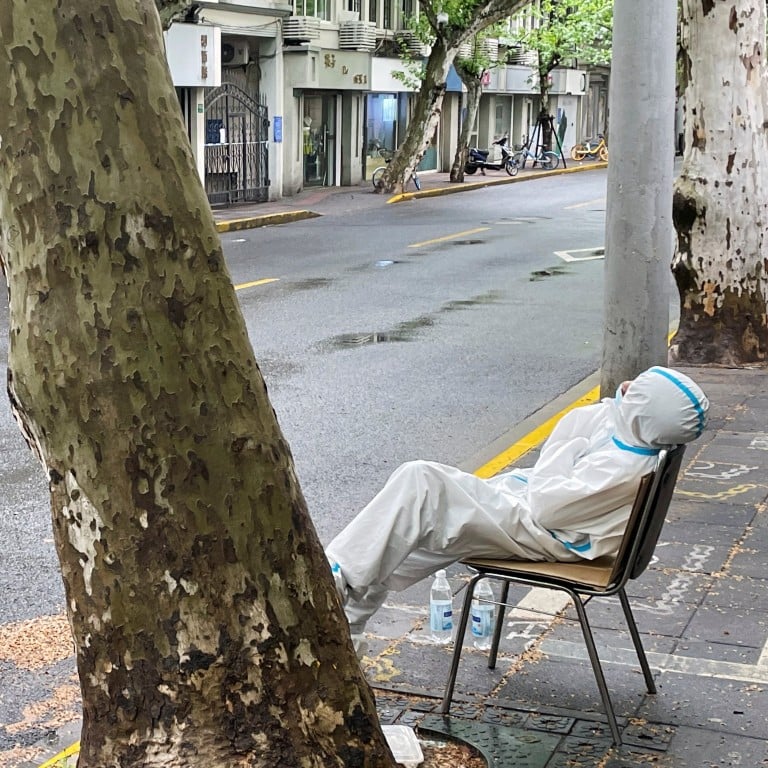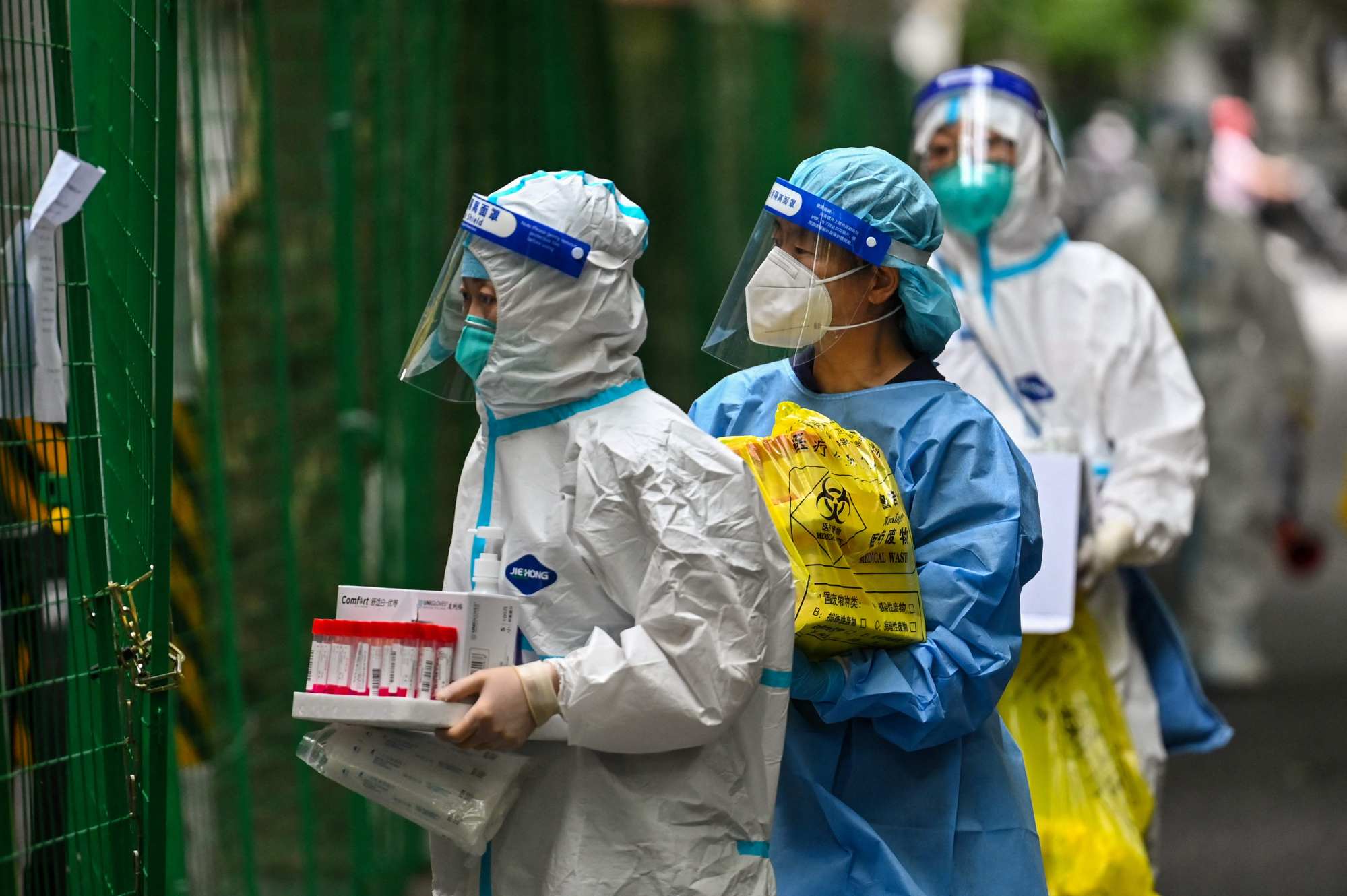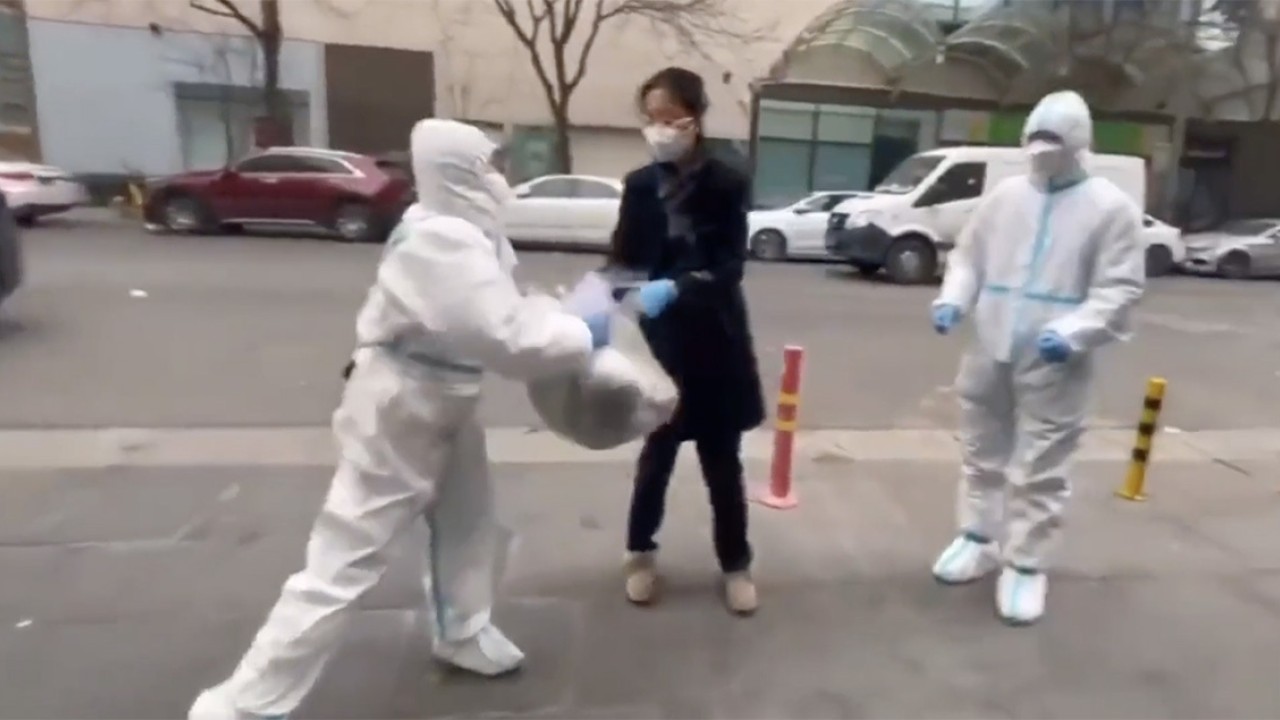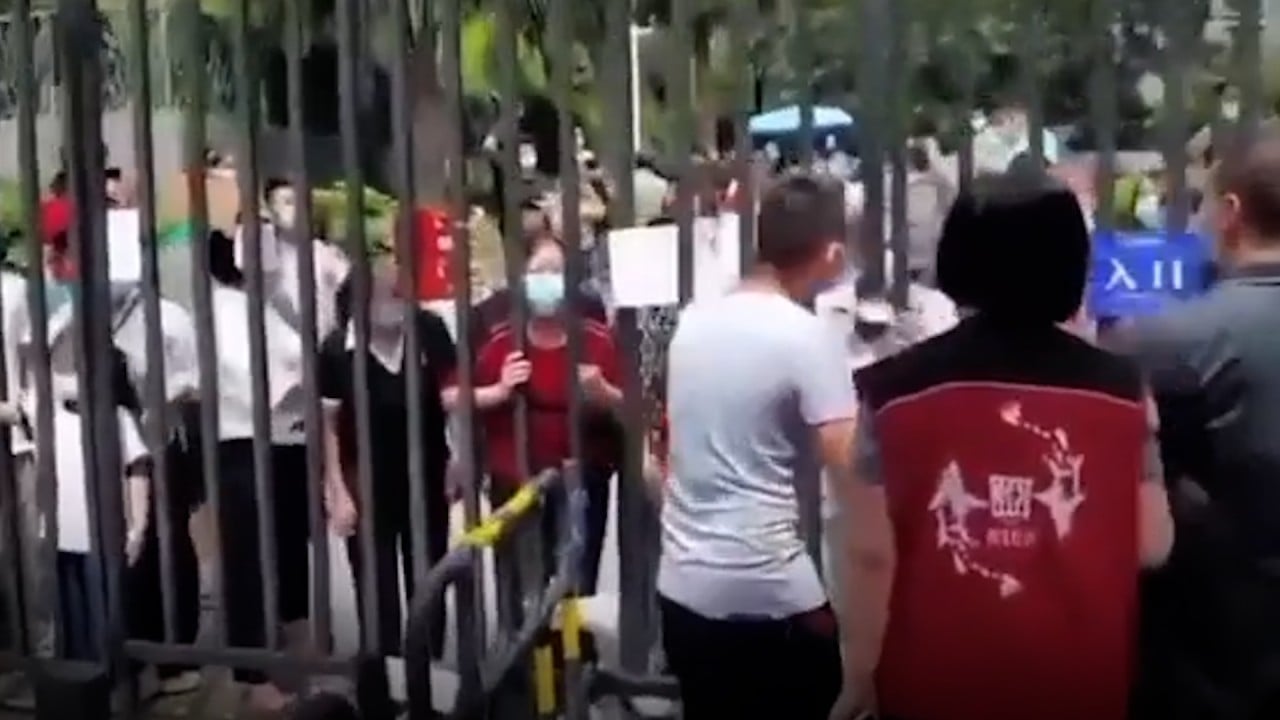
On China’s Covid front lines, an army of ‘big whites’ stands ready to take the fall
- China depends on millions of community officials in trademark white hazmat suits to enforce the nitty-gritty of its shifting zero-Covid policy
- But if they are cursed at by an irate public or the first target when things go wrong, that is just the way the system is designed, analyst says
“People are losing patience and they are not afraid to challenge authority and its decisions now,” said Liu, 30, one such worker in Neijiang, in southwestern Sichuan province.
“People shout profanities at me when I go checking on them,” Chen said. “I can understand that because their life is affected.
“But I have to follow my orders and we have been warned that heads will roll if the controls fail because these are still the priorities.”
Liu and Chen are among the millions of Chinese anti-Covid foot soldiers responsible for implementing and policing Beijing’s “dynamic zero-Covid” policies.
Along with a multitude of others recruited on short-term contracts, they make up the often-reviled “big whites” – or da bai – in their white hazmat suits or personal protective equipment (PPE), working the pandemic front lines for three years now.
Although da bai are not police, they have wide-ranging authority – ranging from implementing lockdowns and organising nucleic acid tests to enforcing home surveillance on families.

Bearing titles like “grid administrator” and “10 households supervisor”, officials like Chen and Liu are the nuts and bolts of China’s social control network that has enabled Communist Party leaders to keep close tabs on the population.
Urban communities are divided into grids, a network built upon China’s decades-old hukou, or household registration, system that would identify someone as a permanent resident of an area. The grid control network was adopted after greater population mobility rendered the hukou system ineffective.
Administrators track and monitor residents within their grid area, which is subdivided into streets and blocks of flats. Chen, for instance, is an grid administrator in Baiyun district covering about five blocks of flats and Liu has 14 families of about 60 people under her watch.
The network has proven to be a powerful tool in the anti-pandemic battle, as it allows officials to exercise tight social control during lockdowns while providing basic living support and services.
It is, however, a double-edged sword. While the system allows officials to track and trace almost every individual and monitor their activities, it does not fully empower grass-roots officials, who struggle to manage an avalanche of commands and demands from the top every day as Covid pressure increases.
This makes it difficult for them to act as bridges between the authorities and the public.
“Things change quickly now and we struggle to keep up with the changes [in policies],” Liu said. “But with the long line of communication and frequent changes, we, who are at the bottom of the command chain, are overwhelmed.”
‘Speechless’: health worker’s death amid Shanghai lockdown sparks online furore
According to Liu, a simple request needs to go through her supervisor – who is responsible for the block of flats of which she is one of the watchers – and then to the grid administrator, before it reaches the subdistrict office, which is the lowest supervisory unit in China’s urban administrative hierarchy.
Ambiguity in many Covid control directives was another problem, Chen said.
“This is why I am happy that they have clarified some of the policies now,” he added, referring to a policy relaxation last month removing some zero-Covid controls.
Both Liu and Chen said they had little idea about their legal power over those under their watch, but prefer “soft approaches” to avoid confrontation.
“We know for sure that we are not the police and we are not law enforcers,” Liu said. “So I always want to avoid physical or verbal conflicts [with the residents] since I live in this neighbourhood and we know each other.”
Another hurdle is their lack of emergency and medical training. Poor communication in crisis situations can also be fatal.
“Community workers are not medically trained and we are not qualified to make medical decisions. We can only relay messages to the decision makers, and hope that the communication lines do not break down,” said Liu, who graduated from a local university with a degree in Chinese studies.
“Strokes and heart attacks can be fatal and we will of course shout for help,” she said. “But for cases like someone suffering from a nervous breakdown, we would need people with a lot of experience to help us.”
Outcry over China’s zero-Covid policy again as woman, 55, dies in lockdown
Alfred Wu, an associate professor at the National University of Singapore’s Lee Kuan Yew School of Public Policy, said China’s social control network was purposely structured such that frontline officials would bear much of the blame if something went wrong.
“There is an old Chinese saying: the central government is the benefactor to the people, provincial leaders are like their family, and municipal officials are their good friends,” Wu said.
“But when we get to the county level, officials are the bad guys, cadres who manage the townships are evil and the worst are those who run the villages.
“Given China’s unique party-state system, [top leaders in] Beijing will never be seen as responsible.
“In the case of Covid controls, the leaders set the goals that can cover pandemic control targets, economic and social priorities, social stability and national security, but local officials will have to figure out measures that can be applied in their areas.
“This is an art that only the wily old birds in officialdom can master.”



